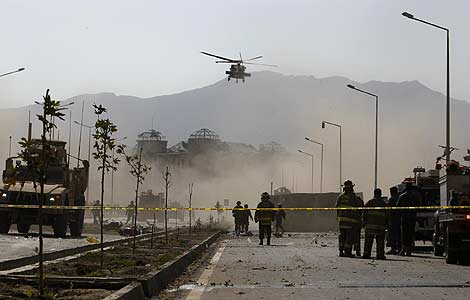Experts call for regulating tattoo parlors
Updated: 2011-10-30 19:57
(Xinhua)
|
|||||||||||
BEIJING - China needs regulations to supervise and ensure sanitary working conditions in tattoo parlors, experts said, as the tattoo industry is flourishing while going ignored and unregulated by the government.
Tattoos had been considered taboo, low class, and even crime-related in China in the past, but tattoo parlors have been springing up in cities, often in back alleys, in recent years.
Inspectors have found hygiene and sanitary problems in a series of tattoo parlors, where scissors, forceps and bottles were found in a mess, said a health official, who refused to disclose his name, in the city of Shenyang in Northeast China's Liaoning province.
He added that many people get tattoos in nail salons or brow studios that lack sanitizing equipment.
"There is a real lack of understanding about the potential health risks involved," said a dermatologist surnamed Liu with the No 4 People's Hospital of Shenyang. "Some poorly-skilled tattoo artists have left scars on people's skin, and people getting tattoos may get infectious diseases like hepatitis at unsanitary parlors."
The health official also said "the tattoo industry should belong to medical and beauty services, but there are no laws or regulations saying so. That's why health authorities can not grant medical licenses to tattoo parlors."
Zhang Ligang, a lawyer with Bailian Law Office in Liaoning, said that laws are needed to regulate the tattoo industry, which is still largely ignored by the government.
Until then, tattoo artists and those getting tattoos have to rely on their own knowledge for hygiene and safety, he added.
Meanwhile, tens of thousands of people are currently employed in the increasingly popular industry, according to estimates from the China Association of Tattoo Artists, which was formed by several artists in 2002.
In China, tattooing dates back to a period between the 21st and 11th centuries BC, the association said.
Hot Topics
Libya conflict, Gaddafi, Oil spill, Palace Museum scandal, Inflation, Japan's new PM, Trapped miners, Mooncake tax, Weekly photos, Hurricane Irene
Editor's Picks

|

|

|

|

|

|







